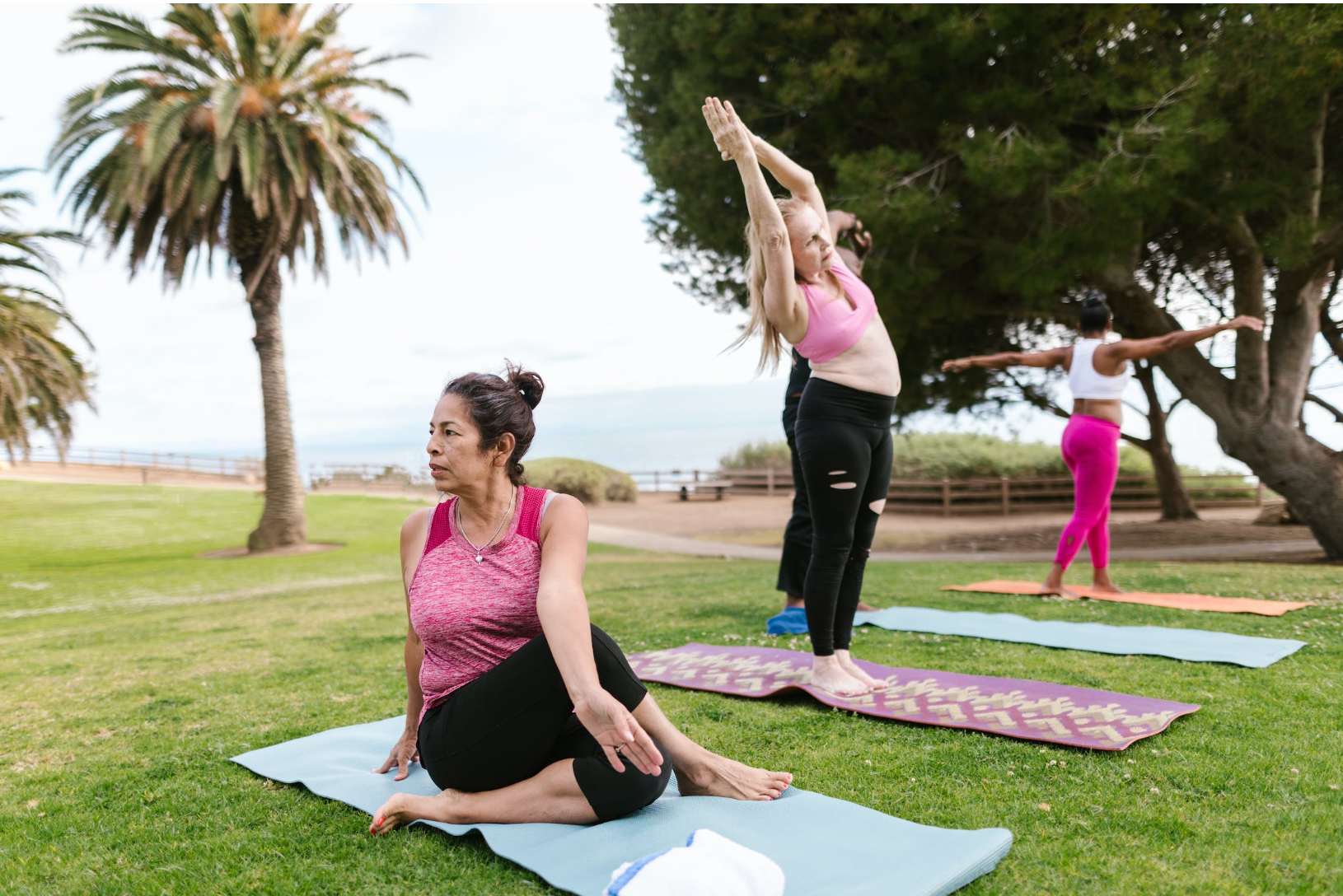Going through menopause comes with many mental and physical changes. One of these changes is the amount of muscle mass, and menopause causes women to lose muscle mass and feel weak and exhausted. Countering this effect can be achieved through strength training, proper nutrition, and supplements to help build muscle after menopause.
Understanding Muscle Loss After Menopause
As women age, hormones naturally start to decline. For women, the primary sex hormone is estrogen, and as they approach menopause, estrogen levels decrease dramatically. This drastic reduction in estrogen plummets you into menopause. You're considered postmenopausal once you haven't had your period for 12 months or more.
While this transition is natural, it comes with many side effects, and one of them is less muscle mass and weaker bones. The lack of muscle can bring out feeling exhausted and normal activities that once were easy like carrying groceries up flights of stairs or even exercising harder.
Estrogen and Inflammation
Estrogen is a vital hormone known more for its essential role in female reproduction. Still, it also has an effect on muscle growth. Estrogen has antioxidant properties and helps protect against inflammation. This can help with recovery post-workout from any possible muscle damage. It can also affect satellite cell activity, which is crucial for muscle repair and growth since it aids in muscle fiber enlargement.
Estrogen is primarily produced in the ovaries and comes in three types. After menopause, only the weakest form of estrogen is produced, this type is estriol. Your body can convert estriol into the stronger forms of estrogen, including estrone E1 (the strongest form) but since reservoirs are lower, a supplement may be needed to boost levels.
Estrogen and Glucose
Estrogen can also help use glucose in the muscles to provide more energy. More energy during a workout can encourage you to work harder and build more muscle. Another benefit of estrogen for muscle building is that it can help with using fat for energy, which could help with endurance exercises.
Estrogen and Bone Health
Bone density is not directly related to muscle growth, but it needs to be mentioned. Estrogen plays a prominent role in building and maintaining strong bones. Healthy bones support solid muscles and with weight-bearing exercises that promote muscle growth.
Estrogen and Cortisol
Cortisol, known as the stress hormone, has many effects on the body, but one of them is that it breaks down muscle tissue. Some evidence suggests that cortisol may help mitigate the muscle-degrading impacts, which helps protect muscles.
Muscle and Testosterone
Estrogen and menopause are directly linked, as are testosterone and muscle mass. While testosterone is a primary male sex hormone, women produce it, albeit at a much smaller level. And even more minor levels after menopause. Testosterone is critical for building muscle.
Other Factors Contributing to Muscle Loss
Besides low hormones like estrogen and testosterone, other factors contribute to muscle loss. People with a poor diet and lack of protein will have difficulty increasing muscle mass. The level and type of exercise affect muscle maintenance and growth. Besides your lifestyle choices, genetics affect how strong you are and how much muscle you have.
Supplements and Muscle Building
Taking supplements to build muscles has long been an activity health experts and laypeople have advocated. When used correctly, supplements can complement diet and exercise to support muscle growth and maintenance. However, it's essential to consult with your doctor or healthcare provider regarding which supplements are right for you.
Critical Supplements for Muscle Building Post-Menopause
Below are some essential supplements for postmenopausal women to build muscles. It's important to note that choosing high-quality supplements tested by a third party and not interacting with your medications is essential for your health.
Protein Powder
Protein is the primary building block for muscle repair and growth. Protein powders come in many forms, from whey, casein, and plant-based forms. Some evidence suggests that women post-menopause need more protein than in child-bearing years.
Creatine
Regarding muscle-building supplements, creatine is one of the most researched and supportive supplements for athletic performance and muscle growth. It does this by helping workout performance by replenishing adenosine triphosphate (ATP) in your body's cells. This increases energy and workout endurance. Both can lead to more muscles.
Vitamin D
Vitamin D is a fat-soluble vitamin that plays a crucial role in different physiological processes, the most significant being calcium and phosphorus homeostasis, which affects bone health. Vitamin D is a unique vitamin because of how it's synthesized by the body.
UVB rays from sunlight touch the skin; they interact with a cholesterol precursor, producing cholecalciferol or vitamin D3.
Omega-3 Fatty Acids
If you love fatty fish, flaxseeds, and walnuts, you'll be happy to know you're lapping up omega-3 fatty acids. They have long been recognized for numerous health benefits connected to cardiovascular health and inflammation modulation.
Still, over the past few years, research has looked at the potential advantages of omega-3 fatty acids in muscle growth and health. Some studies indicate that supplementation with omega-3 can stimulate muscle protein synthesis in adults.
Collagen
Collagen is the most abundant protein in the body, and it's the connective tissue in your skin, bones, and ligaments. It's not typically associated with muscle growth, but it indirectly affects muscle mass and function. Since tendons and ligaments are full of collagen, having an abundant supply makes transferring force between the bones and muscles easier during a workout.
Estrogen
The most common and effective treatment for menopause is estrogen hormone replacement therapy. It also can improve muscle mass indirectly due to its relationship with healthy bone creation and the cortisol effect. Estrogen supplementation comes in different forms, but the most effective is a topical cream. Your skin soaks up the hormone and transfers it to awaiting receptors.
Menopause brings about many changes, but one is the amount of individual strength. Decreasing muscle mass is expected, and certain supplements like estrogen, vitamin D, and collagen can help bring back some power in your life - in more than one place.



